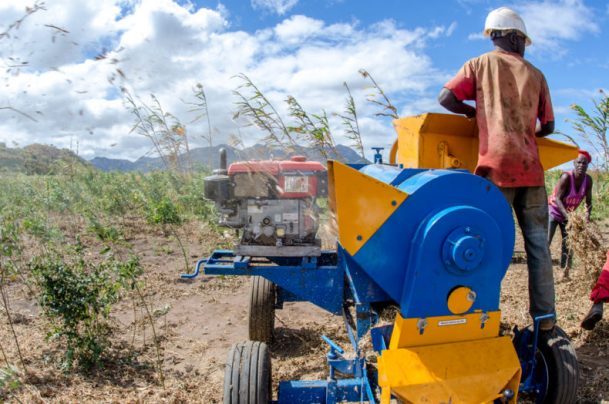A new report showcasing evidence to guide African governments in successfully mechanizing Africa’s agribusiness value chains was launched today by the Malabo Montpellier Panel, a group of 17 African and international experts.The African food and beverage market is projected to reach $1 trillion by 2030. Thanks to advances in renewable energy and digital technology, Africa could leapfrog the stages of technological development other regions have had to undertake, making its mechanization process both swift and extremely lucrative, according to the report.
The report addresses concerns that the mechanization of African agriculture could diminish employment opportunities. Currently, urban labour markets are breaking under the pressures of young people migrating from rural areas into cities. By 2030, it is projected that the number of youth in Africa will have increased by 42 percent. An estimated 30 million young people will join the employment market every year.
“Our report busts the myth that mechanization of African agriculture will be labour replacing. When done right, it can be employment enhancing,” commented Ousmane Badiane, co-chair of the Malabo Montpellier Panel. “Rural employment is critical for reducing poverty, migration and political instability, making mechanization a smart investment for peace and security goals as well.”
The launch of the report, entitled “Mechanized – Transforming Africa’s Agriculture Value Chains”, took place at the Malabo Montpellier Forum in Lilongwe, which gathered African ministers and other high level officials to reflect on its findings.
“African policymakers are eager to deliver on mechanization suitable for their farming communities,” commented the Right Honourable Saulos Klaus Chilima, Vice President of the Republic of Malawi, co-chair of the Malabo Montpellier Forum. “This report provides us with the evidence we need to shape the strategies that will make Africa a place where agribusiness, and those who invest in it can thrive.”
“Mechanization is more than tractors,” commented Joachim von Braun, co-chair of the Malabo Montpellier Panel. “This report emphasizes investment opportunities along the entire agricultural value chain – from small farm production, to processing, to transport and storage.”
“This will reduce the tremendous food losses and counter the raising African food imports. Rural youth demand mechanization to reduce the burden of manual work. If they do not get these opportunities they will continue to walk away,” he added.
Analysis of the policies and investments made by seven African countries determined to be at the forefront of mechanization are a key feature of the report. Ethiopia, Morocco, Mali, Rwanda, Tanzania, Malawi and Zambia have all shown strong growth in both mechanization and agricultural output. Their experience shows that African countries can start to close the large gaps between themselves and other developing regions. Successful mechanization will be key to tackling major challenges on the continent, from spiraling food import costs to rampant rural unemployment.
The seven recommendations set out by the report are:
1. Develop national agricultural mechanization investment plans that form part of countries’ National Agriculture Investment Plans
2. Focus on mechanization pathways and strategies that generate new employment opportunities
3. Prioritize mechanization along the entire food value chain, not just at production level
4. Invest in supporting infrastructure, such as irrigation systems and electricity grids
5. Incentivize the private sector to invest in mechanization through tax waivers and smart subsidies
6. Use public-private partnerships to develop local machinery industries to ensure the technology is affordable and appropriate
7. Provide localized services that match farmer demand with appropriate technologies
Source : Agra









